Check out the latest issue of Trout Line. To download a pdf version for your screen reader click here.
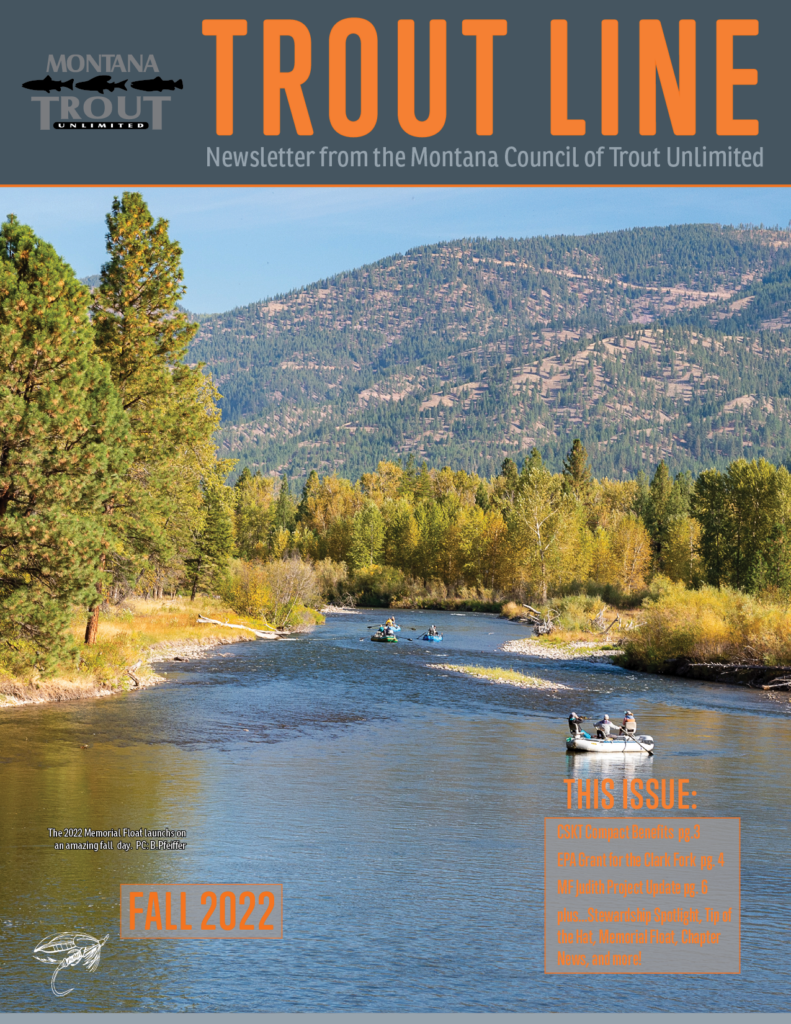
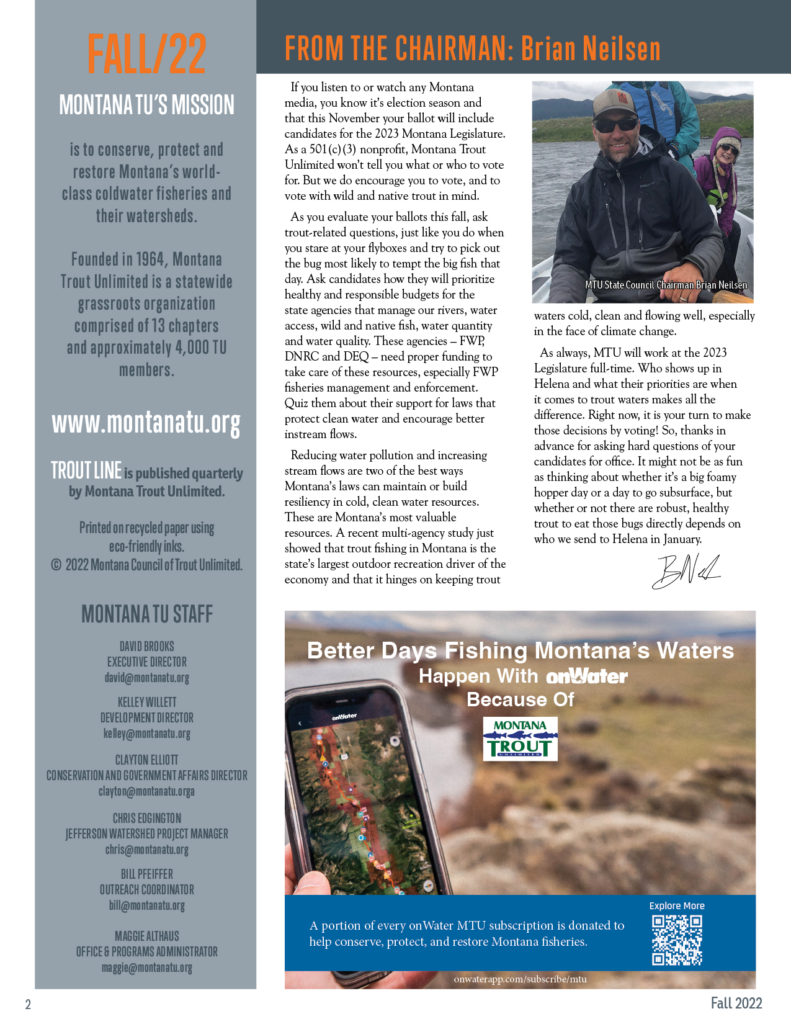
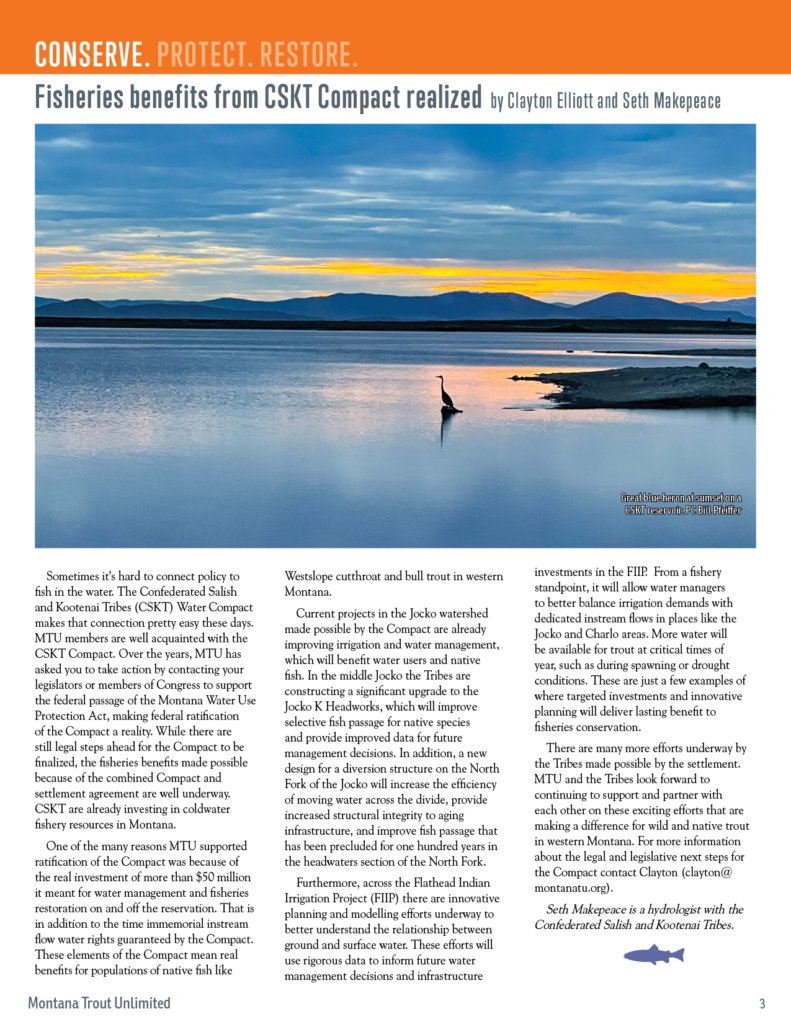
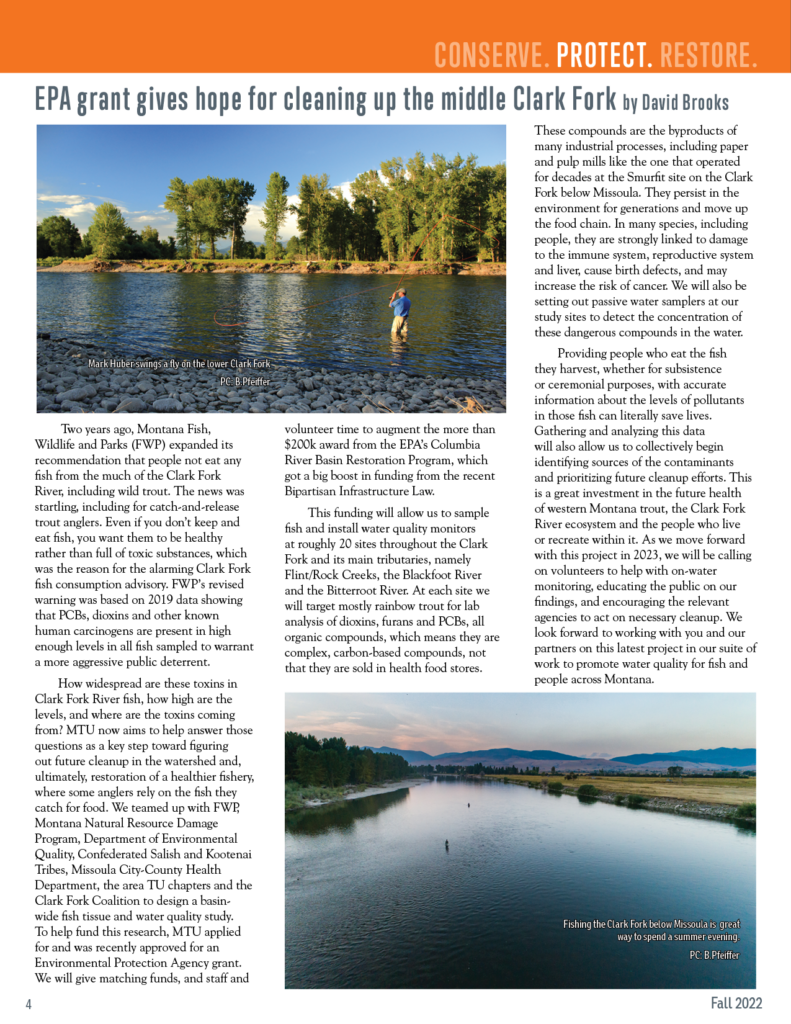
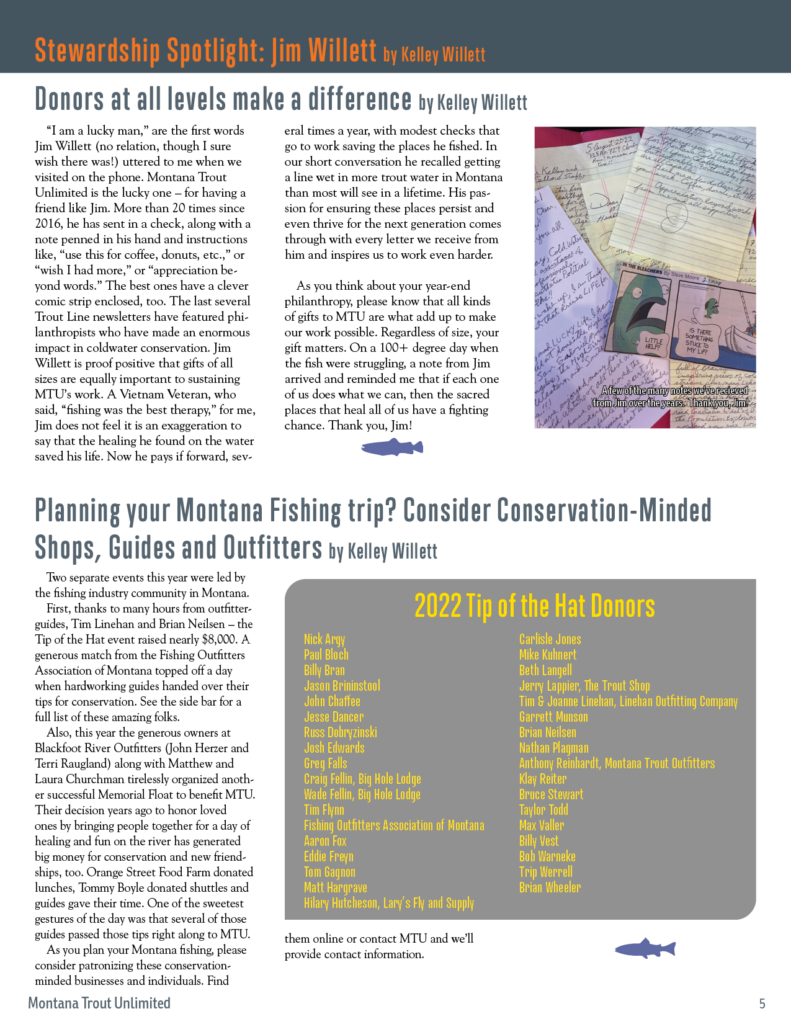
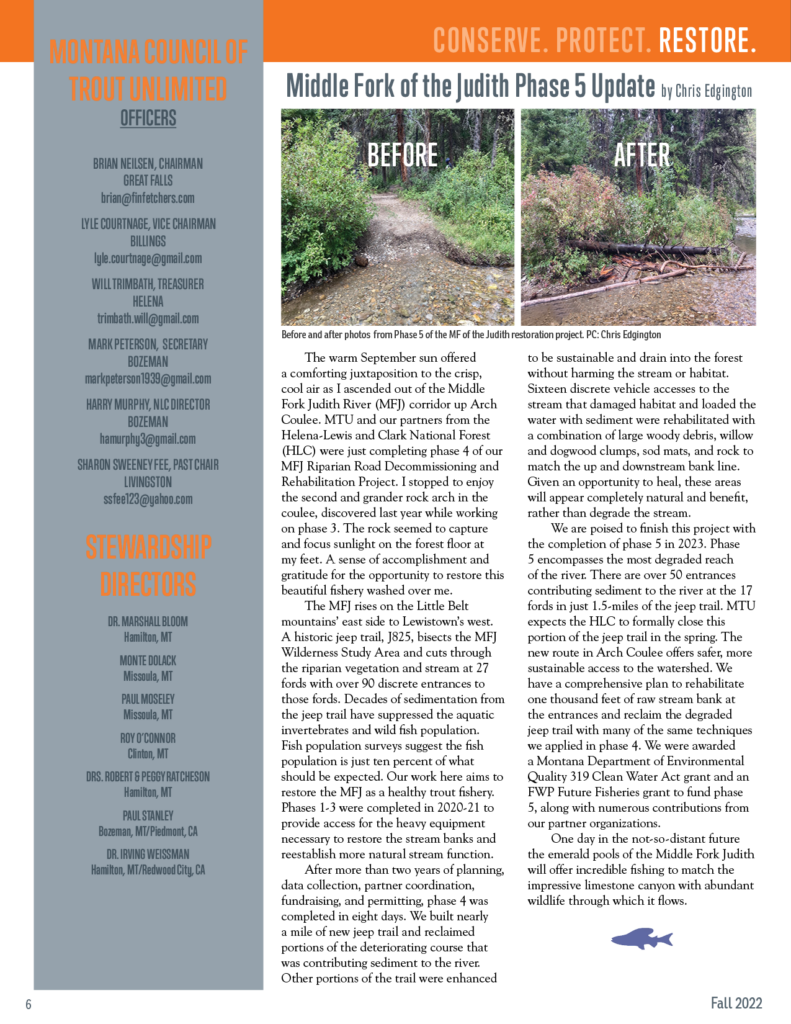
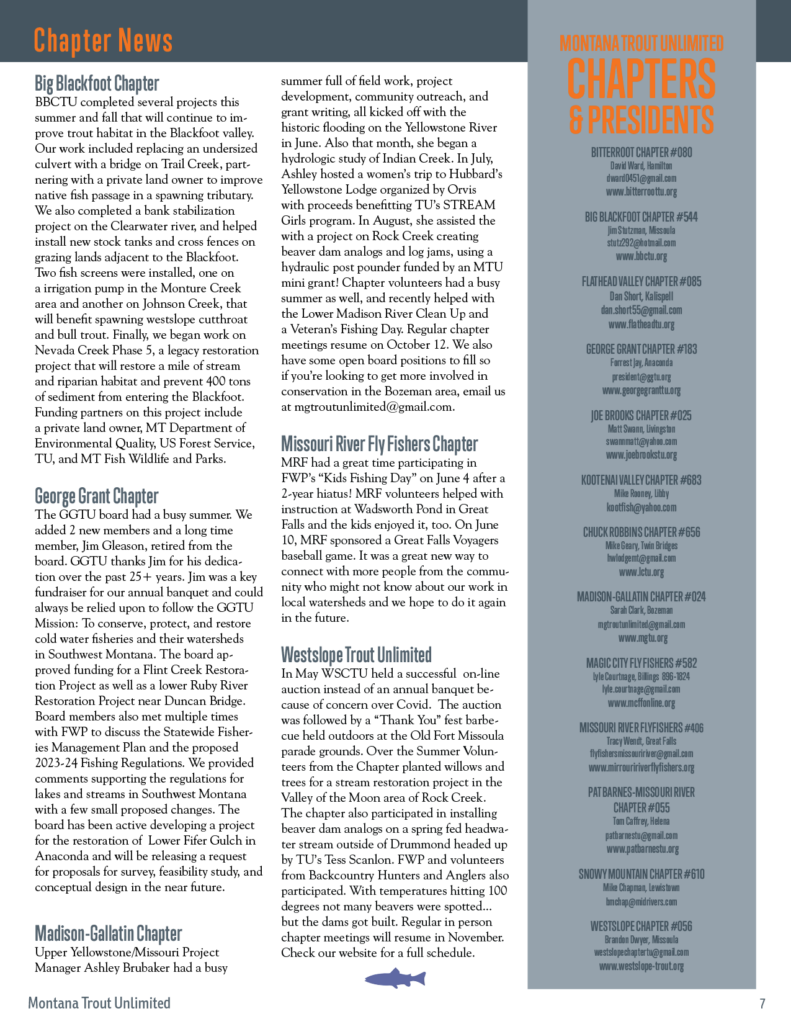


Check out the latest issue of Trout Line. To download a pdf version for your screen reader click here.








Montana Fish, Wildlife and Parks (FWP) is undergoing the now biennial review of fishing regulations and has proposed changes for the 2023-24 seasons. We support the vast majority of the proposed regulations and encourage our members and the public to get involved in the process. While FWP is hosting a series of Open Houses around the state, with opportunities to ask questions, we strongly recommend that interested citizens submit formal comments on issues they care about. Comments will be accepted until September 22, 2022 at 5pm. Visit https://fwp.mt.gov/fish/regulations/public-comment for a complete list of the proposed changes and opportunities to comment online on each proposal.

Here are 5 things we are happy to see and support in the new proposed regulations:
We hope all interested members of the public take the opportunity to get involved in this important process. If you have any questions, please reach out to us directly at [email protected].
By David Brooks, Executive Director, Montana Trout Unlimited
As historic flooding in the Yellowstone watershed recedes and people impacted turn to the daunting and complicated task of rebuilding, it is valuable for us to reflect on the last time the Yellowstone flooded. The aftermath of the highwater event that took place in the spring of 1997 offers lessons for moving forward now.

That year, a deep snowpack followed by a warm spring with heavy rains sent the river out of its banks for much of its length from Yellowstone National Park through Billings and beyond. Scenes of property and infrastructure damage were much like those we’ve seen this June. Then, as now, people think of floods as great acts of nature. To some degree that’s true. But the 1997 floods brought home the reality that how we manage and manipulate our rivers also determines how floodwaters behave.
Between 1995 and 1998, the U.S. Army Corps of Engineers (the Corps) issued more than 170 permits for projects along the banks of the Yellowstone River, mostly for riprap, dikes and other bank hardening that reduced natural river habitat. Many of those permits were issued in a rush following the 1997 floods. There was so little analysis of how individual projects would cumulatively impact river health and future flooding that Montana Trout Unlimited joined four other conservation organizations in taking the Army Corps to federal district court. Because of the lawsuit, projects were put on hold. By summer of 2000, our coalition prevailed. The court unequivocally deemed that the Corps had violated the Clean Water Act and the National Environmental Policy Act by allowing the modification of the river’s banks without analyzing how such projects would have a collective negative impact on the river’s health and cause worse future flooding. Blanketing the banks of the Yellowstone or any river with boulders, concrete or hardened canal-like walls was increasingly harming fish and greatly increasing the flood risks to downstream neighbors. As MTU’s Executive Director Bruce Farling put it, the court decision was “the insurance policy Montana needed to prevent the slow death of the Yellowstone, one rip rap project at a time.”

Since that ruling, the Corps has been more cognizant of the negative impacts of projects that reduce natural habitat in ways that accelerate and compound flooding. In contrast, maintaining or restoring riparian habitat absorbs floodwaters, slowing and reducing the rush of spring runoff, keeping that water within the river or, when it spreads into the natural floodplain, dampening the force of floods on human infrastructure like homes, roads, and bridges. In short, what’s good for fish and wildlife turns out to be good for protecting riverside property and adjacent infrastructure. Following the previous flood and lawsuit, a citizen and expert task force studied the upper Yellowstone, resulting in hundreds of thousands of dollars invested in research that documented the damage caused by years of artificial bank stabilization. It also recommended better ways to rebuild and create resiliency in the Yellowstone and other rivers.
The investment in efforts to restore natural river habitat rather than the short-term solutions of riprap or riverside lawns, to build bridges or culverts that better accommodate fish, wildlife, and floods, and to give rivers some space to rise up and move around, as they inevitably do, will pay off during future historic events, with more protections for fish and wildlife, and less risk to property and life. Rebuilding healthier rivers from top to bottom will help keep fish from being washed into fields and stranded. Maintaining a meandering river instead of straightening it can help keep flooding out of places like Red Lodge. Building better engineered bridges can keep rural residents connected to communities and reduce the need for emergency closures of rivers like the Yellowstone. Restoring fully functioning floodplains and resilient river habitat does not prevent floods, especially as we adapt to the alterations that climate change is having on the amount and timing of snowpack and spring rains. But if river restoration following the devastation of 2022 saves native and wild trout, saves on future flood cleanup costs, or saves one home, it sure seems worth considering.